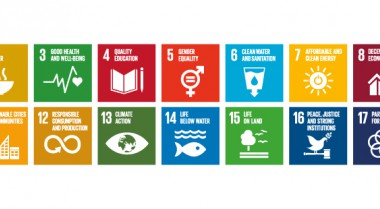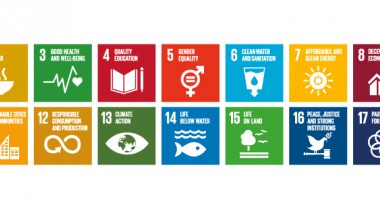
GPPAC Calls for Localized Action on SDG16+
This year’s annual High-Level Political Forum (HLPF) took place between 8-19 July at the United Nations headquarters in New York. Representatives from international and civil society organisations (CSOs) joined forces to discuss this year’s theme of “Empowering People and Ensuring Inclusiveness and Equality”. It presented the first opportunity to review how much progress was made towards Sustainable Development Goal (SDG) 16 on Peace, Justice and Strong Institutions.
The sobering conclusion of the HLPF and GPPAC’s own experience is that there is not enough progress on SDG16 and all other related SDG targets that drive peace, just and inclusive societies. We need much greater commitments by all parties towards achieving progress on SDG 16+ at national and sub-national levels.
As Marina De Paiva, Programme Officer at CSPPS, put it during the HLPF:
“The time for committed, urgent, and meaningful action on SDG16+ is now”. We expect YOU, as Member States, to come to the SDGs Summit with new, meaningful, concrete, and ambitious commitments to accelerate progress on SDG16+”.
For this, we need strong national and global SDG 16+ coalitions and foster greater political will at local, national and international levels to prioritise and jointly implement SDG 16+. Constructive partnerships between civil society and between CSOs and authorities is also needed. There is real urgency in enhancing and bringing coherent investments and support into SDG16+.
More civil society voices need to be heard and taken into account. The HLPF format needs to be reshaped to provide increased structural space for civil society participation during the HLPF (including shadow reports and questions) following the example of the Universal Peer Review mechanism of the Human Rights Council.
GPPAC and the SDGs
The SDGs have emerged as a key policy framework through which GPPAC and members can present their conflict prevention and peacebuilding work in engagements with the United Nations and Member States. It provides a way to make conflict prevention work at the national level more accessible.
GPPAC has successfully worked together with members in Cameroon and Ghana on implementing and reviewing Goal 16 ahead of the HLPF. While other members, such as in the Pacific region and Egypt have undertaken and promoted prevention work under the SDG umbrella. They also attended the HLPF. Both GPPAC and the 2019 UN SDG report highlighted little progress with SDG 16+. Our members, WAA Cameroon and WANEP Ghana shared concrete experiences of how SDG16 can be localized and implemented through a people-centered approach, highlighting the benefits of using this framework.
Local voices at the UN
One key side event GPPAC supported was the “Voices of SDG16+: Stories for Global Action” roundtable and Policy Forum. This was organised with the International Peace Institute, Saferworld, TAP Network and CSPPS. The Voices of SDG16+ is a campaign that gives voice to the local experiences of peacebuilders across the globe. This is done through the creation of videos by local peacebuilders. Such an example is the one by WAA Cameroon:
This campaign provided an opportunity to showcase best practices and bring the kind of localised experiences that are needed for meaningful policy discussions at the HLPF.
“For me, the SDG16 and the WPS agenda enable each other. As a member of GPPAC, we focus more on prevention rather than response to conflict. Through our Queens of Peace Initiative in Cameroon, through using traditional conflict resolution mechanisms, we design the peace table to include women, youth and other marginalized groups”, explained Justine Kumche, director of the Women in Alternative Action Cameroon."

